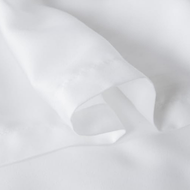Bamboo fiber is not just a sustainable and eco-friendly material; it also boasts remarkable natural properties that make it an ideal choice for bedding, clothing, and other textiles. One of the most notable qualities of bamboo fiber is its antibacterial properties, which contribute to its growing popularity in the home and wellness industry. But how does bamboo fiber naturally resist bacteria, and what makes it so special? Let’s explore the science behind this fascinating characteristic.
1. The Natural Antibacterial Agents in Bamboo
Bamboo contains a compound known as bamboo kun, a natural substance found in the plant’s cells. Bamboo kun has been shown to exhibit antibacterial, antifungal, and antiviral properties. It’s this compound that helps bamboo resist the growth of harmful bacteria and other microorganisms. In fact, studies have demonstrated that bamboo kun can significantly reduce bacterial growth, making bamboo textiles a cleaner, more hygienic option compared to other materials.
2. How Bamboo Fiber Retains Its Antibacterial Properties
Unlike many synthetic fibers that require chemical treatments to become antimicrobial, bamboo fiber retains its antibacterial properties even after it is processed into fabric. The key lies in the structure of the bamboo plant itself. Bamboo fibers have a natural “antibacterial shield” embedded within them, which helps to neutralize bacteria and prevent them from multiplying. This makes bamboo fiber inherently resistant to odor-causing bacteria, which is especially beneficial for bedding, towels, and activewear.
3. The Benefits of Bamboo Fiber’s Antibacterial Properties
The antibacterial properties of bamboo fiber offer numerous benefits for consumers, especially those who prioritize hygiene and comfort in their daily lives. Here are some of the main advantages:
-
Reduces Odor: Since bamboo resists the growth of bacteria, it helps to prevent odors that are often caused by bacterial buildup in fabric. This makes bamboo bedding, towels, and clothing fresher for longer, reducing the need for frequent washing.
-
Improves Skin Health: Bamboo fiber’s antibacterial nature can help to reduce the risk of skin irritation, infections, and acne. This makes it particularly beneficial for sensitive skin, as it minimizes the amount of bacteria in contact with the skin.
-
Hypoallergenic: Bamboo’s antibacterial properties also contribute to its hypoallergenic qualities. Bamboo fabric is less likely to cause allergic reactions or irritation, making it an excellent choice for individuals with allergies or sensitive skin.
-
Longer-Lasting Freshness: Due to its ability to resist bacterial growth, bamboo fabric tends to stay fresher for longer, which means fewer washes and longer product life. This also makes it a more sustainable option, as it requires less water and detergent for cleaning.
4. How Bamboo Fiber Compares to Other Fabrics
When compared to cotton or synthetic fabrics, bamboo fiber stands out for its natural ability to resist bacteria without the need for added chemical treatments. Cotton, while breathable and soft, is prone to bacterial growth and odor retention, especially in hot and humid environments. Synthetic fabrics like polyester may be treated with antimicrobial chemicals, but these treatments can lose their effectiveness over time and may not be as environmentally friendly as bamboo. Bamboo, on the other hand, is a natural, biodegradable material that maintains its antibacterial properties over time without the use of harmful chemicals.
5. Bamboo Fiber and Its Impact on Your Health and Environment
Not only does bamboo fiber benefit your health by resisting harmful bacteria, but it is also an environmentally conscious choice. Bamboo is a highly sustainable plant, requiring minimal water and no pesticides to grow. Additionally, bamboo is biodegradable, meaning it will naturally break down in the environment without leaving behind harmful residues. When you choose bamboo fiber products, you are making a positive impact on both your health and the planet.
Conclusion
The science behind bamboo fiber’s antibacterial properties showcases its unique ability to keep you and your home healthier. From reducing odors and preventing skin irritation to offering a more sustainable alternative to traditional fabrics, bamboo fiber is a standout choice for eco-conscious consumers. As the demand for natural, high-performance materials grows, bamboo’s antibacterial properties make it a great option for bedding, clothing, and a variety of other textile products. If you’re looking for a material that combines comfort, hygiene, and sustainability, bamboo fiber is the perfect solution.
Explore Gokotta's bamboo bedding today and experience the comfort and cleanliness of naturally antibacterial, eco-friendly bamboo fibers!















Leave a comment